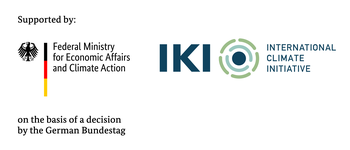COPA primarily supports countries from the Global South eligible for Official Development Assistance in creating effective greenhouse gas mitigation through ozone depleting substances (ODS) and hydrofluorocarbon (HFC) banks management. Partner countries receive access to technical and financial support to establish and further develop a regulatory framework and infrastructure to effectively address the global ODS and HFC banks problem. Countries are welcome to become members of the alliance and benefit from knowledge exchange and an international network of actors willing to jointly work on the sustainable management of ODS and HFCs. In the initial phase, COPA cooperates with China (Ministry of Ecology and Environment of the People’s Republic of China - Foreign Environmental Cooperation Office), Ghana (Ministry of Environment Science Technology and Innovation - Environmental Protection Agency), Mexico (Secretariat of Environment and Natural Resources of Mexico), Tunisia (Ministry of Environment of Tunisia) and Ecuador (Ministry of Production, Foreign Trade, Investment and Fisheries). COPA is working with the five countries to define country-specific commitments, develop project concepts and implement first pilot actions. The results and expertise can then be transferred and multiplied to other countries. COPA focuses on mitigation actions in metropolitan regions as ODS and HFC waste stocks mostly accumulate in densely populated areas.COPA PARTNER & MEMBER COUNTRIES
COPA COUNTRIES
Grenada The adequate collection, storage, recovery, and disposal of Ozone Depleting Substances (ODS) banks is a challenge for Grenada and many other countries. The challenges Small Island Developing States (SIDS) are encountering are indeed unique peculiar as compared to more developed nations: while the banks are relatively smaller, the solutions on the other hand, particularly for destruction, become more costly with many operational challenges and limited in choice. A complete ODS bank inventory for Grenada was published in 2021, which provided a comprehensive analysis of ODS banks in Grenada and proposed a structured collection system for end-of-life equipment and the treatment of refrigerants banks. The inventory showed that the only end-of-life ODS that still exists in storage is HCFC-22 with 175 kg stored in cylinders on the island. Grenada is in the early stages of managing ODS banks. Over the years, many steps have been taken such as reducing the consumption of ODS’s namely HCFC-22. Since 2015, the consumption of HCFC-22 has been relatively stable due to no new imports of equipment using ODS and a robust program for controlling imports of these refrigerants. As a result, the stock of installed ODS equipment is decreasing while the end-of-life is increasing. Since there is no export or destruction of waste refrigerant occurring, the banks of ODS should remain constantly distributed among refrigerants in stock and end-of-life equipment and quantities recovered and stored in cylinders. Grenada has an active recycling and recovery program during servicing, practiced by the majority of the formal sector with over 20 sites or workshops equipped with recovery machines provided by the National Ozone Unit (NOU). Despite the program being voluntary, it is well adhered to. However, Grenada still imports a little over three metric tons of ODS every year for service and repair of the aging equipment that is leaking at the rate of almost 20%. Recovered refrigerants during servicing are a problem for the recovery operators who store the cylinders with no solution of how to dispose of them. Recently, Grenada has launched a Recycling and Reclamation center for refrigerants, with the goal of reclaiming refrigerants from old appliances. The reclaimed refrigerants will then be cleaned and sold to technicians to service operating appliances. The program to manage end of life treatment of ODS is a major challenge for very low volume countries with economies in transition. Challenges range from lack of capacity and resources/equipment, lack of access to disposal technologies, uncertainty of a financial mechanism stakeholder by-in and co-operation. Until solution for these challenges can be found, it would remain the major challenge in the work of the NOU. Key activities under COPA in Grenada include: UNDP is willing to support the partners to strengthen their systems for the reduction of ODS and HFCs banks emissions.
Please select a country:
Member
Activities
